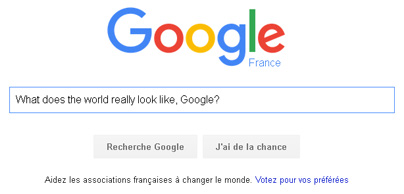We all saw this coming eventually, but here’s the latest on Europe’s ill-considered “right to be forgotten”:
French data protection regulators on Monday rejected Google’s bid to appeal an order that requires the company to block French results removed under Europe’s “right to be forgotten” from all of Google’s sites.
….An order from France’s Commission Nationale de l’Informatique et des Libertés, or CNIL, earlier this summer required Google to remove requests results from all versions, including Google.com, but the company appealed.
A Google spokesman said that the company was trying to cooperate with European authorities, “But as a matter of principle, we respectfully disagree with the idea that a single national Data Protection Authority should determine which  Web pages people in other countries can access via search engines.”
Web pages people in other countries can access via search engines.”
Well, yeah. There’s just no way that a French regulator can force Google to censor results on an American website. The reason should be pretty obvious, even to a French data protection agency: If France can do this, every other country can do it too. It’s not hyperbole to say that this would be the end of the internet as we know it. Like it or not, it’s just not a tenable position.
So now this gets appealed to EU courts, and hopefully they’ll display some common sense. If they don’t, I’m not sure what happens. No other country will allow France to unilaterally dictate what their citizens are and aren’t allowed to have access to, so in the end the French won’t get their way. They just won’t. They can block sites in their own country, as the Chinese do, but practically speaking that’s all they can do.
If that’s how this ends up, the result would be a class-divided internet in France. Smart, well-educated folks would be relatively unaffected. They all know—or would quickly figure out—how to connect with Google.com and would routinely get the full story when they ran a search. Conversely, the unwashed masses mostly wouldn’t know how to do this and would obliviously continue to use Google.fr, not knowing that, unlike their elite countrymen, they were seeing an expurgated version of the world. Maybe that would be OK in France. I don’t know. But it doesn’t sound like a great way to run a country to me.


















